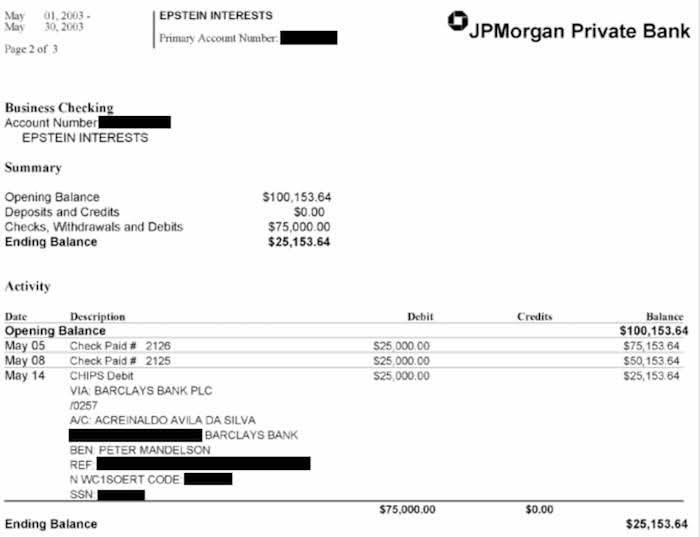Politics
Manifesto Destiny #3: Plaid Cymru

PLAID CYMRU is perpetually standing at a political crossroads.
One step forward. One step back. Followed by a step to the left and a half-step to the right.
And that’s been the way of it since 1999.
When a party’s policies consistently score well with the public, yet the party doesn’t increase its number of seats, there’s an indication some deep-seated issue prevents a breakthrough.
In the parts of Wales where Plaid needs to win constituency seats, it has made little progress at the national election level in twenty-two years.
And yet its policies score well with many Labour voters. In the Valleys of East Wales, Labour’s core vote is not thrilled by that party’s record in Wales. It is soft at the edges and fed up with the same old formula. After twenty-two years of Labour government, Wales is stuck in a never-ending loop of narrow managerialism without political leadership.
PERCEPTIONS OF PLAID
The massive elephant in the room is that in Anglophone Wales – where Welsh is relatively little spoken or read – Plaid is seen less as the Party of Wales than the Party of the Welsh Language.
Running in tandem with that notion, which is supported by census data about the distribution of those with Welsh language skills, is the electorate’s perception that Plaid considers the Welsh language first and all other policies second.
To an extent, the second point is projection. People project on to Plaid what they know of Anglo-parties’ history and attribute to the Party of Wales what they know of other parties’ conduct. In Westminster, the Conservatives are a byword for back-scratching cronyism. In Wales, the Labour Party – see Neath Port Talbot Council – fulfils the same role.
Based on those experiences, the internal logic is that Plaid would prioritise the language – ‘forcing it on non-Welsh speakers’, using the English-only pejorative phrase – above good governance and good sense.
For a significant number of Wales’ voters, even among some who speak Welsh, the Welsh language is irrelevant to their political considerations.
It’s a stick with which voters beat Plaid and one which the other parties deploy.
SMALL ‘C’ CONSERVATISM
Wales is a small ‘c’ conservative country.
The rout Labour suffered in parts of Wales in December 2019 demonstrates, no matter how much activists howl, large sections of the electorate do not share Plaid and Labour’s vision of the nation. At least not when and where it counts.
And Plaid, determinedly, is a party of the left with less in common with many of its voters than it might find comfortable to acknowledge. Plaid Cymru’s contortions to satisfy a largely metropolitan interest in identity politics estrange its traditional voters with more grounded priorities. And whatever votes there in those contortions, they won’t add a single seat to Plaid’s tally.
That said, it’s grossly unfair to suggest that identity politics define Plaid Cymru. Plaid’s primary problem is marking out an identity for itself, including all Welsh nationalist sentiment instead of one part of it.
Those small ‘c’ conservatives among the Welsh electorate favouring greater Welsh autonomy should be inside Plaid’s tent. They should not feel excluded from it because they have views that irritate Party activists.
The issue of perception is perhaps Plaid’s most significant hurdle to overcome with the broader Welsh electorate. It certainly has been to date.
COMMUNICATION
For a party with so many gifted communicators both inside and outside the Senedd, and a leader who is a compelling public presence, between elections, Plaid’s communications seem a little diffuse and inclined to contrarianism for the sake of it.
Election campaigns start the day after the last election finished.
Plaid needs to spend more time driving home its core manifesto pledges on everyday issues, whether in government or not.
This time Plaid’s manifesto is admirably focused on what it wants to achieve if it forms a government.
It needs to stick to those lines as hard as possible, even if it is either not in government or in government in a joint enterprise with Labour.
Plaid also needs to accept that whatever its electoral fate on May 6, not everything it wants to do will be deliverable.
Plaid calls its manifesto ‘the most radical since 1945’. This article doesn’t make a judgement on that claim. However, 1945’s Labour manifesto came in at under 5,000 words and barely 11 pages of A4.
Plaid’s five core policy areas are interwoven in the detail of its manifesto.
A more concise document (126 pages!) that preached less to the choir and more to voters would improve it no end.
THE CORE POLICIES
As Adam Price told The Herald when he became leader, the core of Plaid’s programme boils down to five key policy areas.
1. The best start in life for every child
· Free school meals to all primary school children using quality Welsh produce.
· Investing in 4,500 extra teachers and support staff, reducing class sizes, and valuing the teaching profession.
· Childcare free for all from 24 months.
2. A plan for the whole country to prosper
· A £6bn Green Economic Stimulus to help create 60,000 jobs.
· A guaranteed job or high-quality training for 16–24-year-olds.
· Zero-interest loans to support small businesses to bounce back post-Covid.
3. A fair deal for families
· Cut the bills of average Council Taxpayers, helping the weekly budget go further.
· £35 per child weekly top-up payment to families living below the poverty line.
· 50,000 social and affordable homes and fair rents for the future.
4. The best national health and care service
· Train and recruit 1,000 new Doctors and 5,000 new Nurses and allied staff.
· Free personal care at the point of need for the elderly, ending the divide between health and social care.
· Guaranteed minimum wage of £10 an hour for care workers.
5. Tackling the climate emergency
· Set a Wales 2035 Mission to decarbonise and to reach net-zero emissions.
· Establish Ynni Cymru as an energy development company with a target of generating 100 per cent of electricity from renewables by 2035.
· Introduce a Nature Act with statutory targets to restore biodiversity by 2050.
In principle, none of the above should be particularly contentious. The climate emergency and green energy pledges will not play well among older voters. However, the environment is an issue that resonates with younger voters (aged 16-24).
Of Wales’ three main parties, Plaid has the most to gain from younger voters and mobilising them to turn out. It’s a mystery why Plaid hasn’t both encouraged younger voters to register and targeted them more assertively. Doing so would deliver a USP and a future voter base.
PAYING FOR IT
Ynni Cymru, a Welsh national energy company, is an idea Plaid floated at the start of the last Welsh Parliamentary term. It has re-emerged in a much-changed form from that originally floated. Instead of controlling green energy production, Ynni Cymru would be a staging post, a project development company similar to Transport for Wales.
The long-term aim is the establishment of a state-backed energy company.
Unnos –Land and Housing Wales – would be a clearinghouse for investment in funding affordable and social housing in the same vein.
Extending the state will come at a cost.
More public spending needs more money. That money can only come from raising taxes and more public borrowing. Plaid’s reliance on historically low interest rates to fund its plans glosses the certainty of future interest rises and their impact on those plans’ deliverability.
Plaid is at least upfront that – if it forms a government in its own right – some people will pay more tax in one way or another. And, at least, it confronts the issue of Council Tax head-on instead of pussyfooting around it like Labour. After 22 years, Labour intends to have a jolly good chat about it for the next five years.
For which reason, if no other, Plaid deserves a round of applause.
INDEPENDENCE DAY
Independence. Plaid is in favour. It promises to hold a referendum on independence if it forms a majority government.
Of all Plaid’s policy pledges, that’s the least surprising.
Surprisingly, Plaid has not – so far – managed to convert the upswing in public support for Wales’ independence into a larger poll share for itself. Unless that changes in the last couple of weeks of this election campaign, Plaid needs to ask itself why that is the case.
international news
Mandelson quits Labour over Epstein controversy

Former cabinet minister says stepping down is ‘in best interests of the party’ as questions raised over historic payments
LORD MANDLESON has resigned his membership of the Labour Party, saying he does not want to cause “further embarrassment” following renewed controversy over his past links to convicted sex offender Jeffrey Epstein.
The former cabinet minister and one-time UK ambassador to the United States confirmed his decision in a letter to Labour’s general secretary after fresh documents released by the US Department of Justice appeared to reference him in connection with Epstein’s finances.
The files suggest that three payments of $25,000 — totalling $75,000, about £55,000 at today’s exchange rates — were allegedly made to Peter Mandelson in 2003 and 2004.
Lord Mandelson said he had “no record or recollection” of the transactions and believes the allegations may be false, but intends to investigate the matter himself.
In his resignation letter, he wrote that he felt “regretful and sorry” to be linked again to what he described as the “understandable furore” surrounding Epstein.
He added that stepping down from party membership was the responsible course of action while he reviewed the claims.
“I do not wish to cause further embarrassment to the Labour Party,” he said. “I have dedicated my life to the values and success of the party and believe I am acting in its best interests.”
Ambassador role ended
Lord Mandelson had been appointed the UK’s ambassador to Washington by Prime Minister Keir Starmer in December 2024.
However, he was removed from the post last year after earlier revelations about his past friendship and contact with Epstein, including emails showing communication after the financier’s 2008 conviction.
The latest release of files has also included photographs said to show Lord Mandelson alongside an unidentified woman. He said he could not place the location or circumstances of the images.
There is no suggestion that appearing in the documents or photographs indicates criminal wrongdoing.
‘Deep regret’
Earlier this weekend, Lord Mandelson reiterated his regret for ever having known Epstein and apologised “unequivocally” to the women and girls who suffered abuse.
“I want to repeat my apology to the women and girls whose voices should have been heard long before now,” he said.
Epstein died in prison in 2019 while awaiting trial on sex trafficking charges, but investigations into his network of associates continue to generate political fallout on both sides of the Atlantic.
Labour has not yet issued a detailed statement beyond confirming it had received Lord Mandelson’s resignation.

News
Policing powers stay with Westminster as devolution debate reignites in Wales

THE UK GOVERNMENT has ruled out handing control of policing and criminal justice to Wales, triggering fresh political debate over whether the Senedd should ever take responsibility for law and order.
South Wales Central Conservative MS Andrew RT Davies said ministers were “right” to block further devolution, warning that separating Welsh forces from England would weaken efforts to tackle organised and cross-border crime.
His comments follow an exchange in the House of Commons, where Liz Saville-Roberts pressed the Home Secretary on transferring powers to Cardiff Bay. The Government confirmed it does not believe policing and criminal justice should be devolved.

“Must reflect the reality on the ground”
Mr Davies said proposals from Plaid Cymru and other devolution campaigners ignore how crime and communities operate in practice.
“The Senedd must not be put in charge of policing,” he said.
“Senedd ministers have an appalling track record on law and order. As senior police officers say, reforms must reflect the reality that many Welsh communities look east towards England far more than they do to other parts of Wales.”
Senior officers have echoed that concern.
Amanda Blackman, Chief Constable of North Wales Police, recently said her force area is “very much connected from a criminality perspective” to Merseyside and Cheshire.
“Our population move, if you like, is more east to west, west to east than it is north to south,” she said, pointing to the daily flow of commuters, shoppers and offenders across the border.
Long-running constitutional argument
Wales currently has four territorial forces – Dyfed-Powys, South Wales, Gwent and North Wales – but funding, legislation, prisons and the courts all remain under Westminster control.
Supporters of devolution argue this creates a “jagged” system, where services like health, housing and education are run by the Senedd but justice is not.
Plaid Cymru has repeatedly called for Wales to follow Scotland and Northern Ireland, both of which run their own justice systems.
They say decisions made in Cardiff could better reflect Welsh priorities, invest more in prevention, and link policing with mental health, youth services and social care.
A Plaid source said: “Communities in Wales should not have to rely on London to decide how their streets are policed. Justice should sit alongside the other services that deal with the causes of crime.”
Cost and complexity concerns
But critics warn that splitting away from England could come at a high price.
Establishing a separate legal and prison system would mean new administrative structures, courts oversight, inspection bodies and funding arrangements.
There are also practical questions around serious organised crime, counter-terrorism and specialist units that currently operate across England and Wales.
Former policing leaders have previously cautioned that criminals do not respect borders, and intelligence-sharing could become more complicated if systems diverge.
For rural areas such as Mid and West Wales, including Pembrokeshire, officers often work closely with English counterparts on drugs, county lines and cross-border burglary gangs.
Little appetite for change – for now
With the current Government making clear it has no plans to devolve the powers, the issue appears unlikely to change in the short term.
However, with constitutional reform regularly debated ahead of future elections, policing remains a live political question.
For now, responsibility for law and order stays firmly with Westminster – but the argument over who should control Wales’ justice system looks set to continue.
News
Pembrokeshire MSs Meet Conservative Leader in Cardiff Bay

Visit comes as campaigning steps up ahead of the Senedd elections on May 7
PEMBROKESHIRE Conservative Members of the Senedd were among those meeting Opposition leader Kemi Badenoch in Cardiff Bay on Friday, as political parties increase campaigning ahead of the Senedd elections.
Samuel Kurtz MS, Welsh Conservatives Group Chair, welcomed Ms Badenoch alongside Darren Millar MS and Conservative colleagues during her visit to the Senedd. Discussions focused on the party’s priorities for Wales, the economy, and the future of the United Kingdom.
With fewer than 100 days to go until polling day on May 7, the Welsh Conservatives said the visit formed part of their preparations for the election, with a focus on their “Fix Wales” campaign message.
Mr Kurtz, who is standing as a Conservative candidate for the new Ceredigion and Pembrokeshire constituency, was joined by fellow candidates Paul Davies MS, Claire George and Brian Murphy.
Following the Cardiff Bay visit, Mr Kurtz returned to Pembrokeshire to hold a public advice surgery at Lamphey Hall, where residents raised local issues and concerns despite heavy rain.
The Senedd election will take place on May 7.
-

 Health4 days ago
Health4 days agoConsultation reveals lack of public trust in health board
-

 News5 days ago
News5 days agoCaldey still unsafe, survivors warn — despite Abbey’s reform claims
-

 Community5 days ago
Community5 days agoPembrokeshire students speak at national Holocaust Memorial Day event
-

 News7 days ago
News7 days agoWales warned against single police force as Lib Dems cite Scotland ‘lesson’
-

 Crime7 days ago
Crime7 days agoMilford Haven man appears in court charged with burglary and GBH
-

 Business7 days ago
Business7 days agoDuke of Edinburgh Inn in Newgale on the market for £325,000
-

 Local Government7 days ago
Local Government7 days agoTribunal over former Neyland councillor’s conduct adjourned
-

 News5 days ago
News5 days agoKurtz raises Gumfreston flooding in the Senedd as petition deadline nears

























